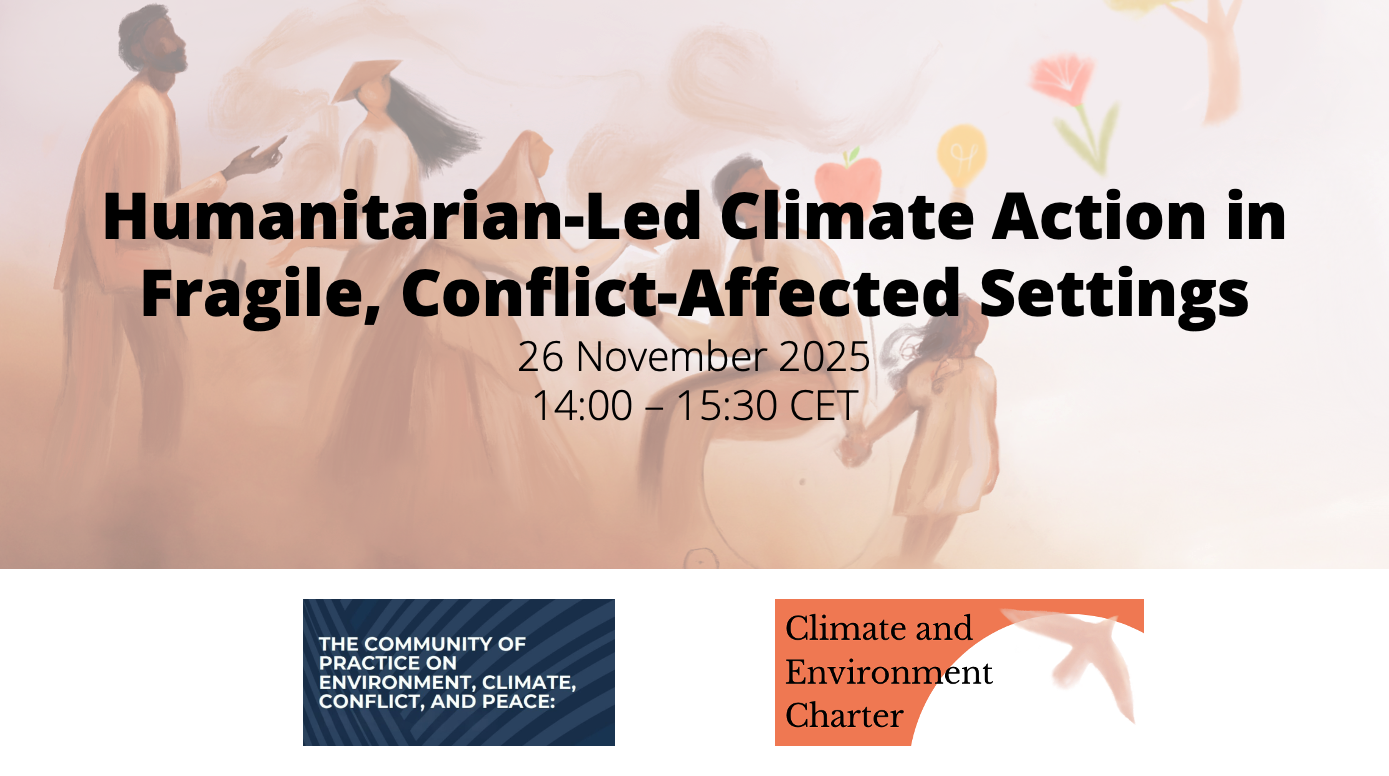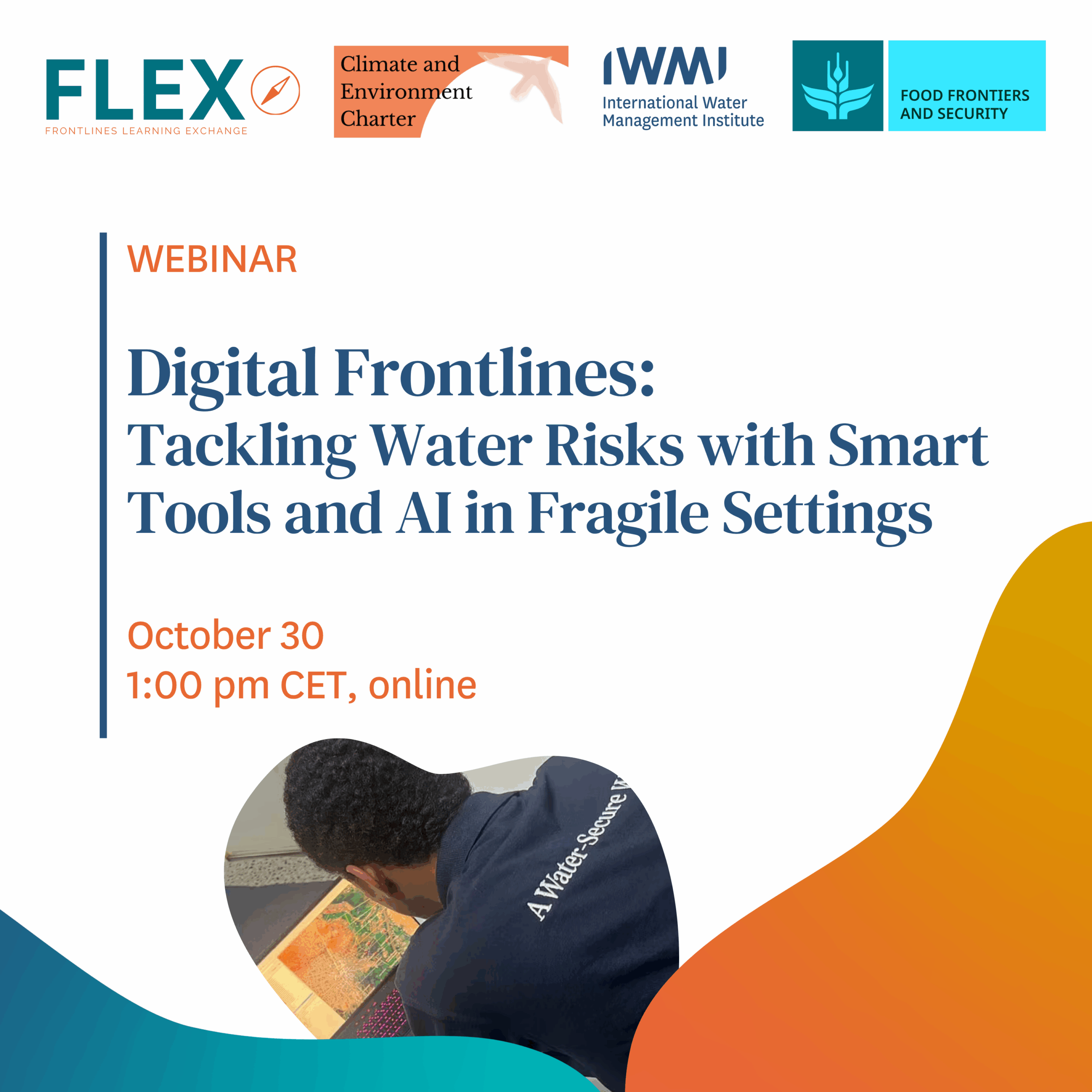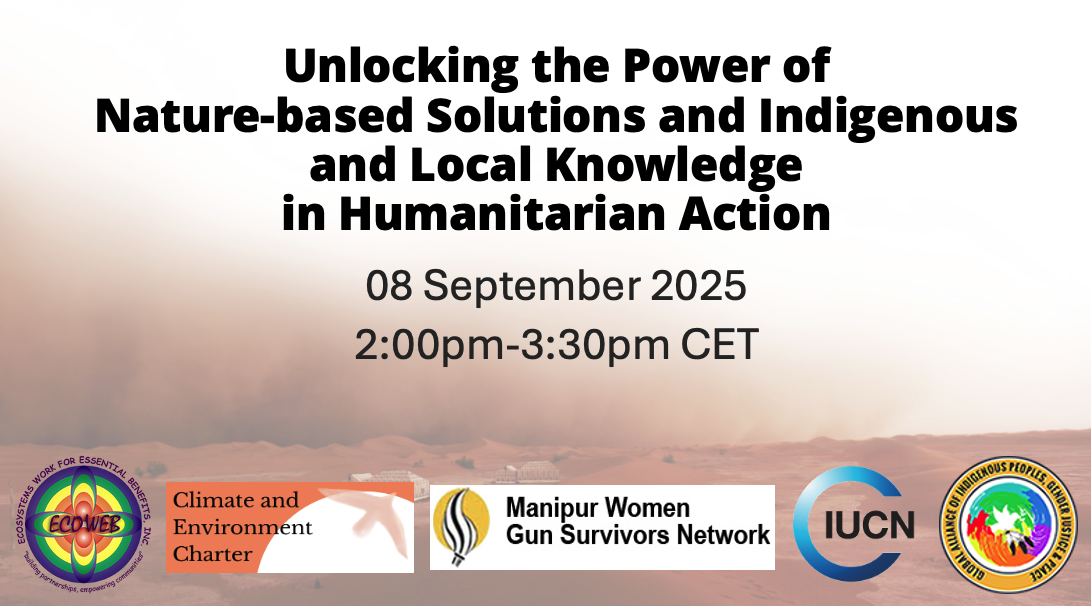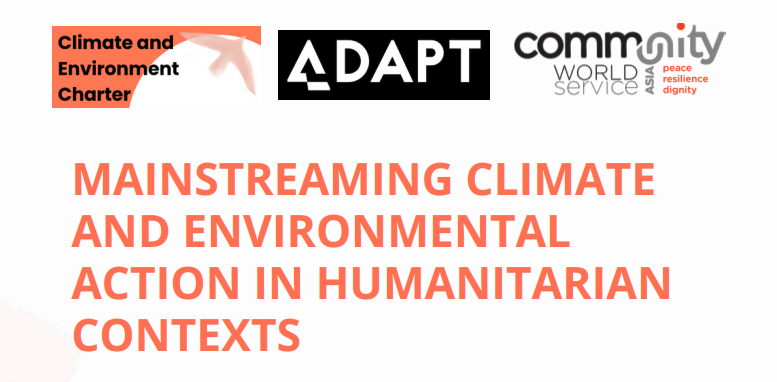Past Events
Charter Event

Humanitarian-Led Climate Action in Fragile, Conflict-Affected Settings
Wednesday, November 26, 2025: 2:00 - 3:30pm CET
This webinar aims to create a dedicated space for knowledge-sharing and capacity building on climate and environmental action fragile and conflict affected settings (FCAS) – a common operating context for many Charter Signatories – through: A) Introducing and raising awareness among Charter signatories on platforms and frameworks for engaging at the intersection of climate, conflict, and peace, including through the environmental peacebuilding community and the climate security space, B) Showcasing tools and resources for humanitarian and peacebuilding organizations to advance climate and environmental programming in FCAS, and C) Creating space for sharing insights, challenges, and learning priorities of the humanitarian sector on climate and environmental programs in FCAS
Charter Event

Digital Frontlines: Tackling Water Risks with Smart Tools and AI in Fragile Settings
Thursday, October 30, 2025: 13:00 - 14:00 CET
This interactive session co-convened by IWMI and the Climate and Environment Charter, brings together researchers, humanitarian stakeholders, donors, and local voices to explore how applied climate and water science - spanning digital twins, anticipatory action, and community-driven analytics - can make humanitarian response more timely, impactful, and fit for purpose. The discussion will identify key evidence gaps, highlight scalable innovations, and lay the groundwork for stronger humanitarian–data partnerships that use water and climate intelligence as pathways for resilience and recovery. The Charter Secretariat will share the Guidance on Climate Risk and Impact Data during the webinar.
Charter Event

Unlocking the Power of Nature-based Solutions and Indigenous and Local Knowledge in Humanitarian Action
Monday, September 8, 2025: 1:00-2:30pm UTC / 2:00-3:30pm CEST
This webinar, co-convened by the Climate and Environment Charter for Humanitarian Organizations, ECOWEB, Manipur Women Gun Survivors Network, and Global Alliance of Indigenous Peoples, Gender Justice, and Peace and IUCN will bring together Charter Signatories and partners to explore how NbS and ILK can be effectively integrated in humanitarian programmes. It will share good practices, lessons from the field, and resources/tools for programme design.
Charter Event

WORKSHOP: Mainstreaming Climate and Environmental Action in Humanitarian Contexts
Friday, December 13, 2024: Bangkok, Thailand
Humanitarian, development, and advocacy organizations working in Asia-Pacific face unique challenges in addressing climate and environmental issues due to the region's unique geography and climate context. Taking place on the sidelines of the Regional Humanitarian Partnership Week, this workshop aims to provide an interactive opportunity for signatories of the Climate and Environment Charter based in Asia-Pacific to unpack how they are systematically taking into consideration the commitments of the Charter into design, planning, implementing, monitoring, evaluation and learning cycles of humanitarian programming